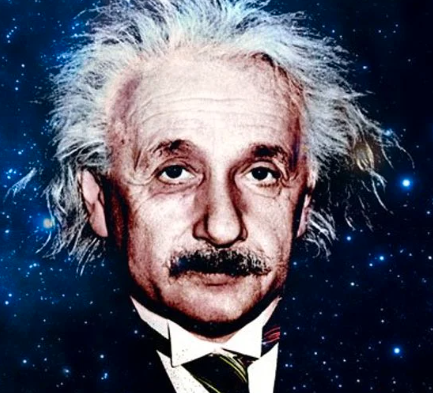
THEME MUSIC
"Facade", Sir William Walton, 1921
Physics is stuck — and needs another Einstein to revolutionize it, physicist Avi Loeb says
Harvard professor Avi Loeb says the potential for a great mind to revolutionize physics is greater than ever
ALBERT EINSTEIN’S WORK SO REVOLUTIONIZED PHYSICS that it is difficult to discuss him without slipping into hagiography. Indeed, his brilliance is so storied that his surname has become synonymous with “genius,” and his brain preserved for study.
AND YET, WHILE EINSTEIN WAS UNDENIABLY A SMART COOKIE, one cannot look back at the course of history without noticing that the dominoes were all there, set up, and waiting for someone like him to start toppling them. Part of Einstein’s brilliance was merely realizing this. Avi Loeb, a professor of physics at Harvard University with a regular column in Scientific American, told me that he thinks that Einstein’s physics revelations would have been developed by others even if Einstein hadn’t been born. “It would take maybe a few more decades,” Loeb clarified. “Many of the things that Einstein personally was responsible for — there at least 10 touchstones in physics where each of them is a major intellectual achievement — you know, they would be discovered by different people, I think,” Loeb continued. “That illustrates his genius.”
LOEB IS ADVISING ON A PUBLIC PROJECT celebrating Einstein’s life and work at Hebrew University, which hosts an archive of Einstein’s documents. The project, “Einstein: Visualize the Impossible,” is slated to be an interactive online exhibition to engage the public with Einstein’s work. As a fellow physicist, Einstein’s work and his life have weighed on Loeb’s mind for years, which is why he was interested in helping curate.
IN CONSIDERING EINSTEIN’S LEGACY, though, Loeb says we have to reckon with what has and hasn’t changed about the physics world. In the 1890s, when Einstein was in college, physics knowledge was a shell of what it is today. Quantum mechanics, dark matter, nuclear physics, and most fundamental particles were unknown, and astronomers knew little about the nature of the universe — or even that there were other galaxies outside our own. Nowadays, many of the biggest physics discoveries happen by virtue of some of the largest and most expensive scientific instruments ever built: gravitational wave observatories, say, or the Large Hadron Collider at CERN.

Physics is stuck — and needs another Einstein to revolutionize it, physicist Avi Loeb says
Harvard professor Avi Loeb says the potential for a great mind to revolutionize physics is greater than ever
ALBERT EINSTEIN’S WORK SO REVOLUTIONIZED PHYSICS that it is difficult to discuss him without slipping into hagiography. Indeed, his brilliance is so storied that his surname has become synonymous with “genius,” and his brain preserved for study.
AND YET, WHILE EINSTEIN WAS UNDENIABLY A SMART COOKIE, one cannot look back at the course of history without noticing that the dominoes were all there, set up, and waiting for someone like him to start toppling them. Part of Einstein’s brilliance was merely realizing this. Avi Loeb, a professor of physics at Harvard University with a regular column in Scientific American, told me that he thinks that Einstein’s physics revelations would have been developed by others even if Einstein hadn’t been born. “It would take maybe a few more decades,” Loeb clarified. “Many of the things that Einstein personally was responsible for — there at least 10 touchstones in physics where each of them is a major intellectual achievement — you know, they would be discovered by different people, I think,” Loeb continued. “That illustrates his genius.”
LOEB IS ADVISING ON A PUBLIC PROJECT celebrating Einstein’s life and work at Hebrew University, which hosts an archive of Einstein’s documents. The project, “Einstein: Visualize the Impossible,” is slated to be an interactive online exhibition to engage the public with Einstein’s work. As a fellow physicist, Einstein’s work and his life have weighed on Loeb’s mind for years, which is why he was interested in helping curate.
IN CONSIDERING EINSTEIN’S LEGACY, though, Loeb says we have to reckon with what has and hasn’t changed about the physics world. In the 1890s, when Einstein was in college, physics knowledge was a shell of what it is today. Quantum mechanics, dark matter, nuclear physics, and most fundamental particles were unknown, and astronomers knew little about the nature of the universe — or even that there were other galaxies outside our own. Nowadays, many of the biggest physics discoveries happen by virtue of some of the largest and most expensive scientific instruments ever built: gravitational wave observatories, say, or the Large Hadron Collider at CERN.

